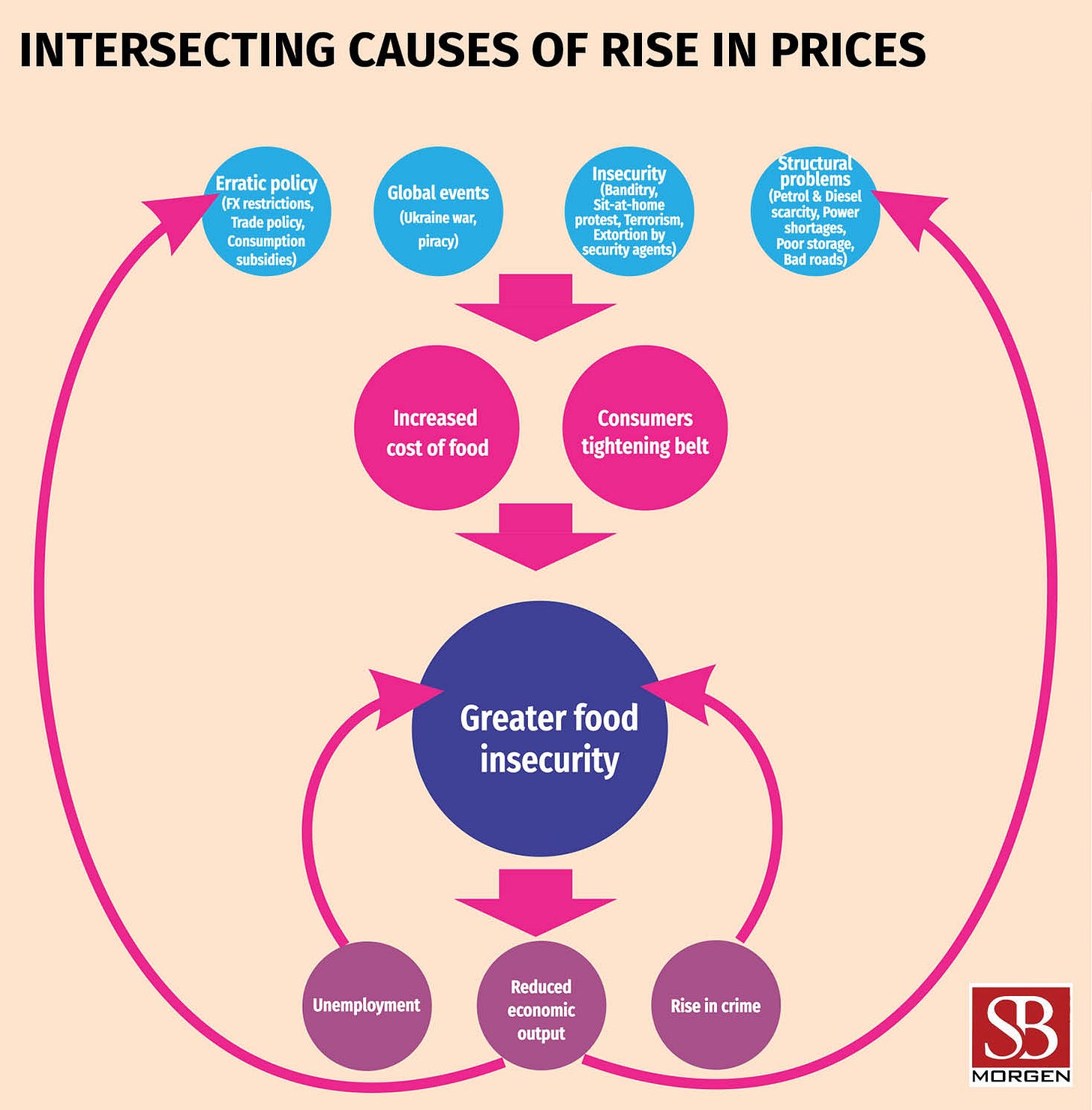Leaning into hunger
West & Central Africa faces severe lean season hunger, with 3M at emergency levels due to conflict, inflation, and climate shocks.
The World Food Programme (WFP) warns that 52 million people in West and Central Africa will struggle to meet basic food and nutrition needs during the upcoming lean season (June-August). Nearly three million people will face emergency hunger levels, with 2,600 people in Mali at risk of catastrophic hunger. The crisis is worsened by food inflation, high fuel costs in Ghana, Guinea, and the Ivory Coast, and recurrent extreme weather in the Sahel, Lake Chad Basin, and the Central African Republic. Ongoing conflicts have displaced 10 million people in the region, including eight million in Nigeria and Cameroon.
The humanitarian crisis in West and Central Africa is escalating rapidly, a consequence of the dangerous interplay between conflict, climate change, and economic decline. The World Food Programme's (WFP) recent warning highlights this deepening emergency, projecting that as the lean season (June-August) approaches, nearly three million people across the region face emergency levels of hunger, with a staggering 2,600 individuals in Mali at risk of catastrophic famine. This fragility in the region's food security is primarily driven by armed conflict. Persistent violence, particularly in the Lake Chad Basin, the Central Sahel, and parts of Nigeria and Cameroon, has not only destroyed livelihoods but also displaced nearly ten million people. Nigeria and Cameroon alone host an estimated eight million internally displaced persons (IDPs), straining resources and access to essential services like farmland and healthcare. This displacement creates a vicious cycle where insecurity fuels hunger, and hunger exacerbates instability.
Climate change is a significant multiplier of this crisis. Between 2022 and 2024, recurrent extreme weather events, including floods in Nigeria and neighbouring countries and droughts in Sahelian regions, have consistently disrupted agricultural cycles. These repeated shocks leave communities with dwindling resilience and threaten to transform the typical lean season hardship into a full-scale disaster due to failed harvests and depleted food reserves.
Economically, soaring inflation and rising food prices further compound the crisis. In countries like Nigeria, Ghana, Guinea, and the Ivory Coast, fuel prices have driven up the costs of food production and distribution, creating a stark reality where available food is increasingly unaffordable for most households. This inflation erodes the already limited coping mechanisms of vulnerable communities. Adding to these challenges are anticipated reductions in foreign aid from key donors, including the United States.
A particularly concerning trend is the growing link between insecurity and the displacement of farming communities. Armed groups are forcibly removing farmers from their land, often replacing agriculture with illicit activities like mining. Mali serves as a stark example of this, with significant territories falling under the control of non-state actors. The slow recognition by regional governments of this direct correlation between conflict and food insecurity risks further entrenching the crisis.
Addressing this multifaceted emergency demands a comprehensive and sustained response that goes beyond immediate food aid. It requires integrated efforts in peace-building, climate adaptation strategies, economic stabilisation measures, and long-term investment in resilient agricultural systems. Regional governments must prioritise regaining control over territories lost to armed groups, facilitating the return of displaced populations to their farmlands, and actively rebuilding disrupted local economies. The WFP's projections serve as a critical call to action. With millions on the brink of severe hunger, the decisions and actions taken by regional leaders, international donors, and humanitarian organisations in the coming weeks and months will be decisive in determining whether the region can avert widespread suffering or descend further into catastrophe. The urgency of the situation cannot be overstated.


